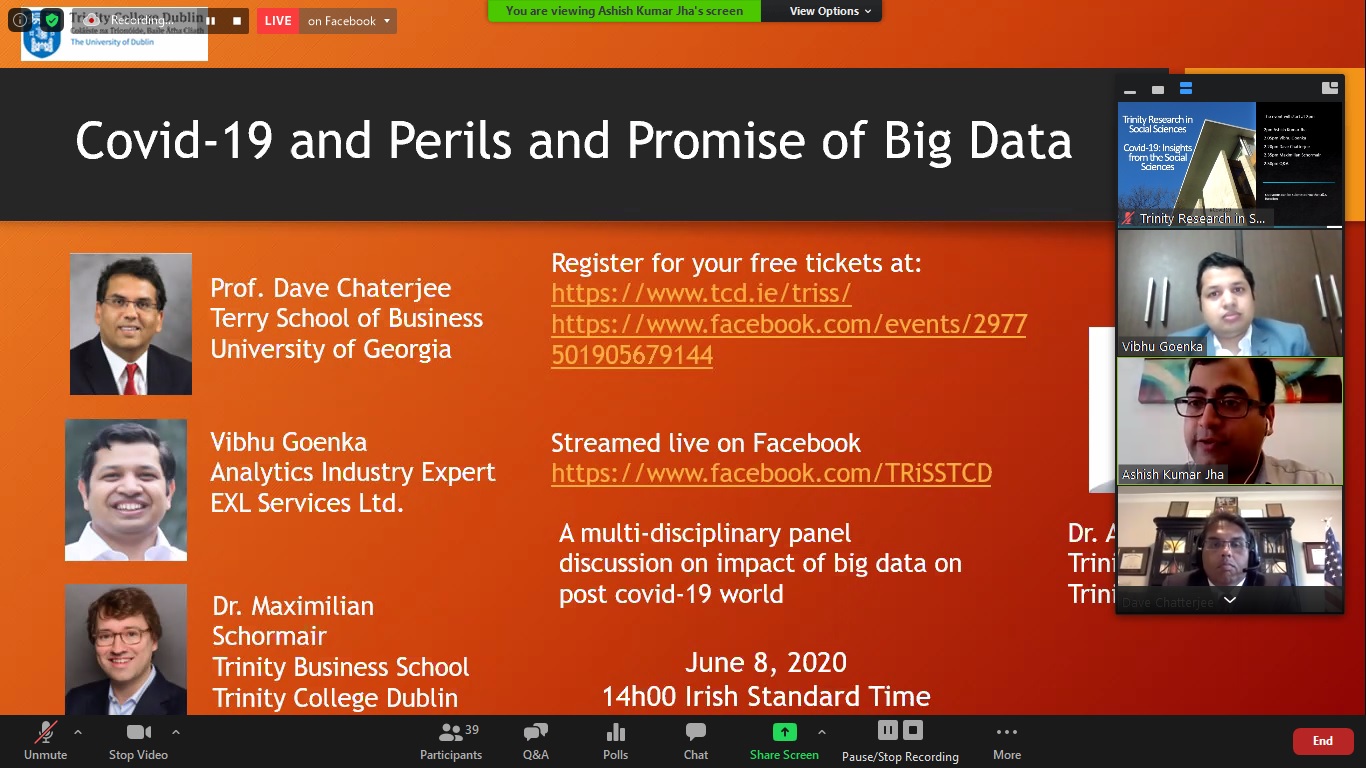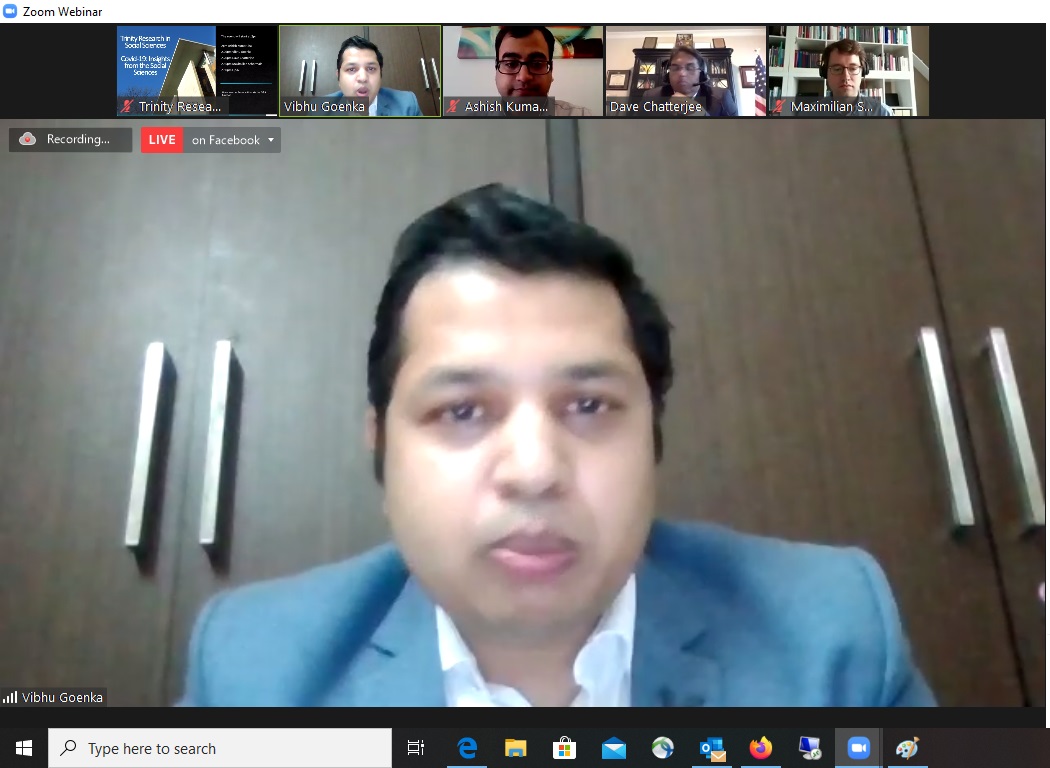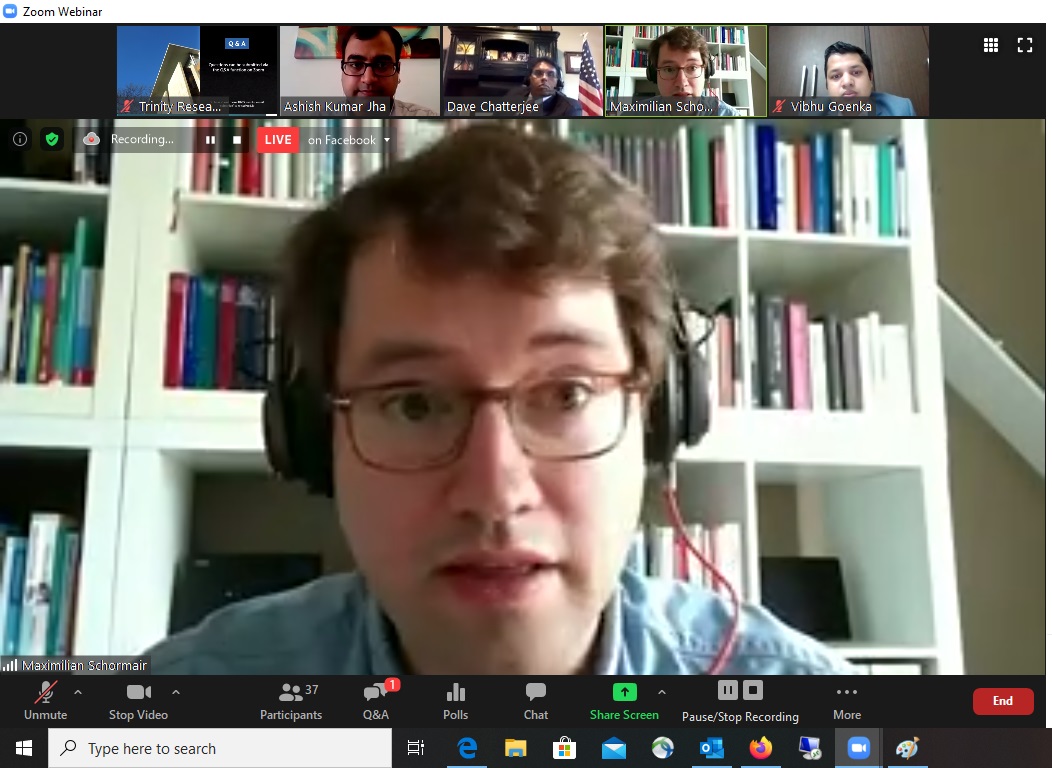Covid-19 and Perils and Promise of Big data - a report by Prof. Ashish Kumar Jha





Rise of data driven decision making has been the central tenet of businesses across the world for greater part of last decade. This has led to a rise in usage of advanced data storage and analysis technologies commonly referred to as big data and analytics. In a cruel twist of fate, covd-19 pandemic provided a platform for usage of such technologies at a much wider scale in sectors such as epidemic planning, tracing etc. In order to analyse how big data and analytics might be used and abused in future, Trinity Research in Social Sciences along with Trinity Business school organized a virtual panel discussion on the above-mentioned topic. The panel members were Prof. Dave Chatterjee from University of Georgia, Prof. Maximilian Schormair from Trinity Business School and Vibhu Goenka from EXL services Ltd. India. I had the opportunity to chair the session.
Vibhu Goenka put discussed how big data and analytics is playing a central role in a variety of sectors. He discussed about the analytics techniques being employed to test large scale populations for covid-19 incidences with a limited test kits. At sectoral levels as well, his view was that big data and analytics will continue to be more and more useful and central to business processes. These processes could include non-contact consumer preference elicitation, risk assessment for financial products based on wide variety of financial and non-financial information etc. In short, the future belongs to firms that use and deploy big data and analytics wisely.
Dave, a renowned cybersecurity expert, agreed that role of big data in businesses is rising and that businesses are storing massive amounts of data but that also meant that businesses need to be more aware of data thefts and cyberattacks. He talked about the importance of being resilient and how top management can ensure through technical and non-technical measures to make an organization secure for cyberattacks. He also discussed the rising role of machine learning algorithms and analytics techniques to scan and prevent cyberattacks.
The final piece in the puzzle of big data analytics in post-covid-19 world lies in the domain of ethics of data collection. Maximilian Schormair from Trinity business school discussed the legitimacy of contact tracing apps that many countries have launched. For him such contact tracing apps that intend to collect data would be successful only if people have trust in them. He also opined that same logic extends to multitude of applications and websites that are attempting to collect data from their consumers, but the success of such endeavours depends on the level of legitimacy that they can establish with their end consumers. In all, the views of the panellists and the resulting discussion afterwards led to the conclusion that the future does belong to big data and analytics technologies as firms along with governments would put additional efforts to not just collect data but also to mine and make sense of that data. However, the potential pitfalls are what firms need to be aware about. This includes ensuring high degree of cybersecurity to protect data as well as ensuring a high level of trust with their end consumers so that consumers feel the legitimacy of such applications and use them and share data.
Email 'subscribe' to triss@tcd.ie to be informed of future events and seminars.

